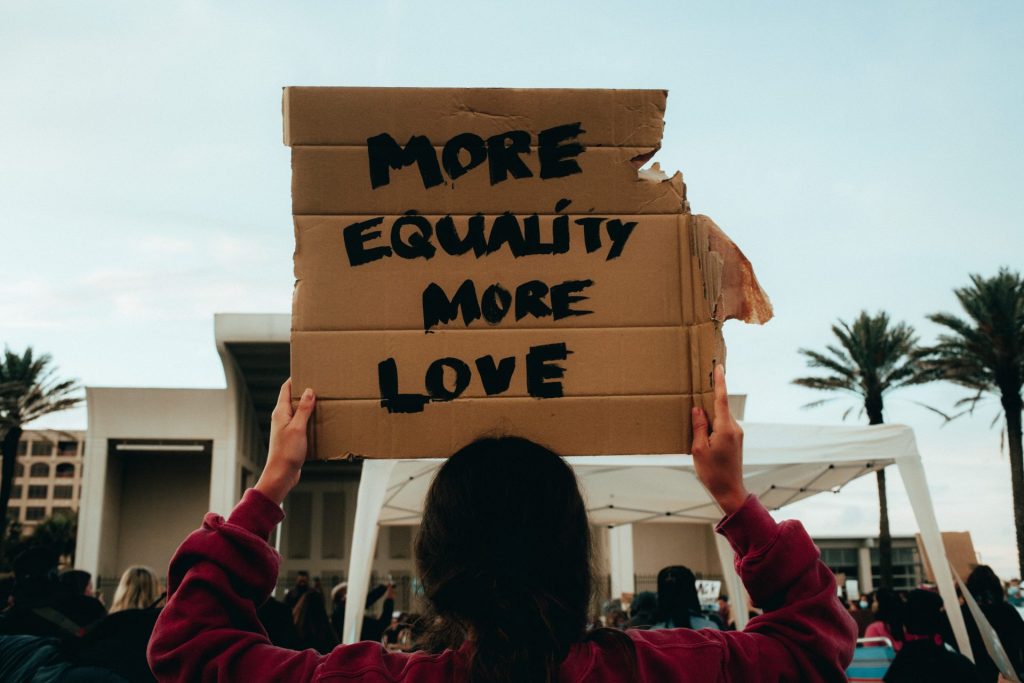
By Mireille D. Church
In celebration of World Day of Social Justice, Mireille D. Church from the Care for Creation and Environmental Stewardship Office, Archdiocese of Ottawa, joins us in the Guardians of the Earth section to help us understand how social justice and care for creation intersect.

Mireille D. Church
In 2020, 82.4 million people experienced displacement throughout the world due to reasons including persecution, conflict and violence.
Why is there such momentum to drive away some humans out of the land on which they were born, on which they’re living and working?
We now know that climate change is a threat multiplier: meaning that because of desertification, droughts and flooding due to a warming planet; because of reduced supply and access to land and natural resources, such as water; because of loss of biodiversity and habitats displacing fish and animal necessary for humans to live, armed conflicts and social unrest are more likely to happen to secure ownership of diminished prized land and resources and more people get up and go to reach more fertile grounds, more accessible employment, more peaceful life conditions, etc…
The link between climate change, people’s poverty and displacement has been established. What can we do about it? Send money to NGOs who help make life more humane in refugee camps is not enough! How can we sleep at night knowing that humans are barely sheltered and don’t have access to their own privacy, sanitary installations, regular education, or access to services we here in Canada take for granted.
This is the scene that inspired Pope Francis to investigate further. He invited 4 young people from various continents to share their personal experience of climate change and the impact upon their community. It has been captured on film in the movie The Letter just released a few months ago.
From meeting these young people, and really listening to them, Pope Francis decided to act… He called on all humankind to pay attention to the cry of the poor and the cry of the earth which is lamenting and affecting our human experience on earth.
He wrote an Encyclical Letter which is normally reserved to the Catholic public. This time he addressed this letter as an invitation to all believers and non-believers alike and gave credit to the international scientific community and to the Indigenous peoples around the world who are sounding the alarm and offering a new way of doing things. Young people are appealing to leaders around the world.
This is where Social Justice and Care for Creation intersect. If rich countries consume less there will be more to go around. Less garbage and waste, less greenhouse gas impact will improve the situation. The result of these meetings and dialogue between the Pope and the young people gave life to the Encyclical Letter published in 2015 called Laudato Si: In gratitude to the Creator for our Common Home pointing to our personal and collective responsibility to care for the earth and each other.
The spotlight is now on Listening to the cry of the earth and the cry of the poor. Both intimately tied. We can only treat the poor justly and generously by restoring a balanced approach to the use of the earth’s bounty. By putting limits on the frenzy of consumers’ excessive buying, storing and hoarding the other peoples’ legitimate portion into their own barns and hidden closets. I am reminded of the brutal Hunger Games movie series where it has become a spectacle for the rich to exploit and watch the poor’s fight for survival and I ask: Was it just fiction?
About Mireille D. Church: When Mireille moved from Montreal where she was born and raised to Ottawa as an adult, she was taken by the abundance of greenspace and proximity to waterways. As an outdoors enthusiast and active member of her Catholic faith community, she’s been using her background in Human Resources and Education to support the youth, promote the love of Creation and live the Laudato Si call in everyday activities. She is currently responsible for the Care for Creation Ministry at the Archdiocese of Ottawa-Cornwall in Ontario and teaches at the University of Ottawa in the Faculty of Education.






Thank you so much friends for the information on creation and preserve the nature. As we appreciate the work well done by our friend Mireille D. Church, I would like to request a collaboration opportunity with any of the organisation to work together in promoting the knowledge that create awareness on care and creation.
The potential collaborator and a partner to work with,is meant to give a hand in our media work with objective of promoting and sensitise on the Catholic heritage.
This done majorly through coverage and documentation, show casing of what has been done before is an activity.
All are welcome to support and work with us.